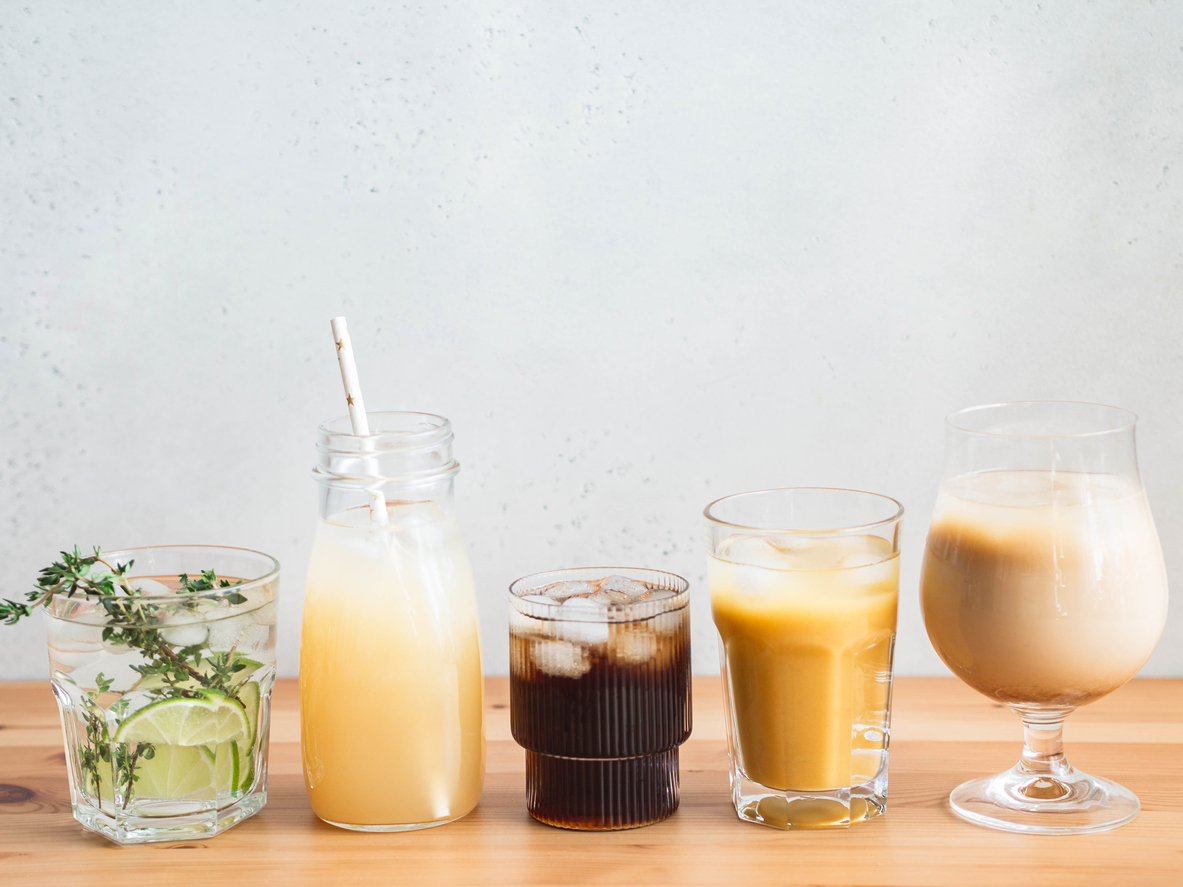
Busting Myths About Fluid Intake
There are many commonly held beliefs about fluid intake that actually have no basis in truth. How much fluid is best? Should I drink 8 glasses of water a day? Is caffeine bad for your bladder? What colour should urine be? Read on to learn the difference between fact and fiction!
Myth #1. You should drink 8 glasses of water a day
Myth #2. Only Water Counts Towards Fluid intake
Myth #3. You Can't Drink Too Much
High fluid intake can be harmful. Drinking too much fluid leads to dilution of sodium in the blood, causing a condition called hyponatremia or water intoxication. This causes the body’s salt levels to drop dangerously, increasing the risk of seizures and death. In the medical literature there are documented fatalities due to excessive fluid consumption in athletes4.
Contrary to popular belief, there is no scientific evidence that a high fluid intake is beneficial for heart disease, deep vein thrombosis (DVT), constipation, headaches, bladder cancer or cognitive function2,3. High fluid intake also isn’t associated with preventing kidney stones in people that have never had them before2,5. There is also no evidence that proves that having a high amount of water intake reduces the risk of developing chronic diseases2. It is important to note however, that dehydration could exacerbate conditions such as chronic constipation and headache intensity2,3.
Myth #4. Caffeine Is Bad For Your Bladder
In some people, caffeine can irritate their bladder, increasing urgency and contributing to incontinence6,7. This is not the case for every person that experiences bladder problems. Whilst large amounts of caffeine have an immediate diuretic effect, meaning that this increases the amount of urine that the body produces; small amounts of caffeine have little to no diuretic action. In addition, regular caffeine drinkers develop a tolerance to the diuretic effects of caffeine6,7.
When you see a Pelvic Health Physiotherapist for your bladder, they will ask you to complete a bladder and fluid intake diary, which will can help understand the effect of caffeine on your bladder symptoms.
Myth #5 If You Wait Until You Are Thirsty You Are Already Dehydrated
Myth #6. Urine Should Be Very Pale Yellow Or Clear
Myth #7. Drinking Lots Of Water Will Help To Lose Weight
Myth #8. You Should Have A Glass Of Water By Your Bed And Should Drink Through The Night
Recommendation: Everything In Moderation & Drink To Thirst
Unfortunately, there is no magic answer to the question, “how much should I drink?”. The amount depends on your age, your general health, your height and weight, the environment in which you live and work, your food intake and your exercise levels, amongst other factors.
Keep in mind that a balance between water and caffeinated, sugary or alcoholic drinks is important. Spreading fluids throughout the day, rather than having large amounts at once can also be a helpful strategy if you have bladder problems.
A common sense approach for a healthy person is to have a drink with meals, have a drink between meals, and more if you are thirsty. If you are playing sport or the weather is very hot you may need more.
References
1 Valtin, H. (2002). "Drink at least eight glasses of water a day." Really? Is there scientific evidence for "8 x 8"? Am J Physiol Regul Integr Comp Physiol, 283, R993.
2. Wood, L., Markowitz, M., Parameshwar, P., Hannemann, A., Ogawa, S., Anger, J., & Eilber, K. (2018). Is it safe to reduce water intake in the overactive bladder population? A systematic review. The Journal of Urology, 200, 375-381.
3. Institute of Medicine: Dietary Reference Intakes for Water, Potassium, Sodium, Chloride, and Sulfate. Washington, D.C.: The National Academies Press 2005.
4. Noakes, T. (2003). Overconsumption of fluids by athletes. BMJ, 327, 113-114.
5. Bao Y, Tu X and Wei Q. Water for preventing urinary stones. Cochrane Database of Systematic Reviews Review – Intervention. 2020. https://doi.org/10.1002/14651858.CD004292.pub4
6. Dumoulin C, Booth J, Cacciari, L, Campbell P, Hagen, S, Homsi J et al. Adult Conservative Management. In: Cardozo L, Rovner E, Wagg A, Wein A and Abrams P, ed. In: Incontinence: 7th Edition. International Continence Society; 2023: pp795-1038
7. Maughan, R. & Griffin, J. (2003). Caffeine ingestion and fluid balance: a review. J Hum Nutr Dietet, 16, 411-420.
September 2023




